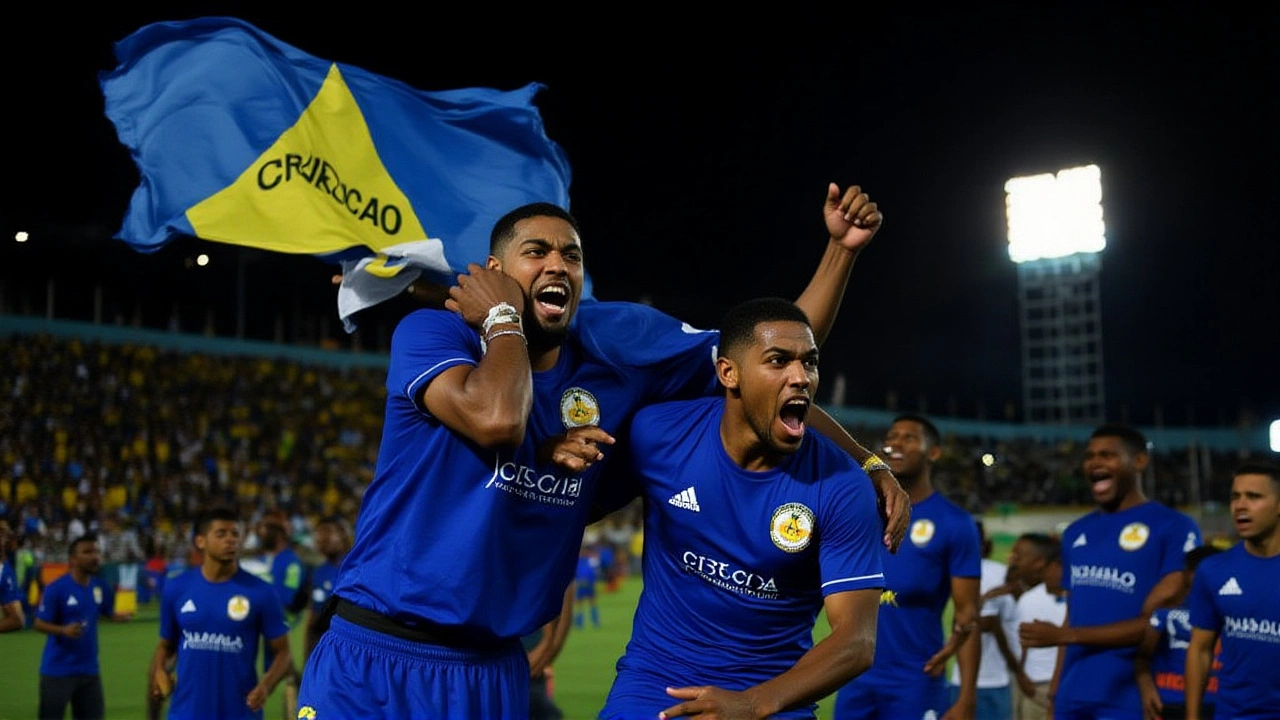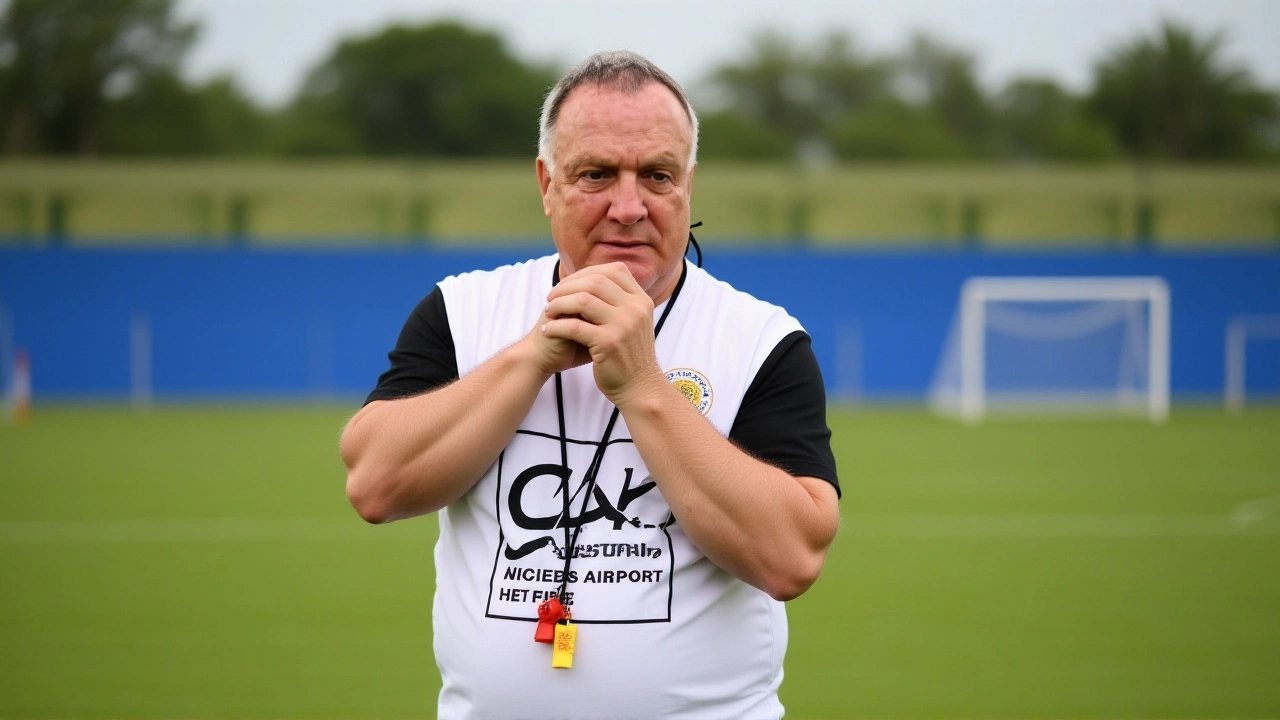When Dick Advocaat took over Sunderland AFC in March 2015, few expected the Dutch veteran to survive the season — let alone return for another. Yet, after a brief retirement announcement, he came back, signed a contract, and spent six more months trying to pull the club from the Premier League’s abyss. His tenure ended in October 2015 with Sunderland in 19th place, just one spot above relegation, and a record of four wins, six draws, and nine losses across all competitions. Today, Advocaat manages the Curaçao national football team, earning €8,000 a month — a fraction of what his peers make — while still chasing the impossible dream of a 2026 World Cup spot.
From Emergency Fix to Reversal of Fortune
Advocaat’s arrival at Sunderland AFC wasn’t glamorous. He was hired on March 17, 2015, after Gus Poyet was sacked following a string of poor results. The club was in freefall, and Advocaat’s initial mandate was simple: keep them up until the season’s end. His first match, a 1-0 loss to West Ham at the Boleyn Ground, didn’t inspire confidence. But then came the Tyne-Wear derby. On April 5, 2015, Sunderland beat Newcastle 1-0 at the Stadium of Light — a rare spark in a dark season. The win wasn’t just about points; it was emotional fuel for a fanbase desperate for hope.
Then came the collapse. A 4-1 home defeat to Crystal Palace on April 11 looked like the end. But Advocaat’s side rallied: a 1-1 draw at Stoke, then back-to-back away wins against Southampton and Everton. For a moment, survival felt possible. He announced his retirement one week after the season ended — a clean break. But by June 4, he’d changed his mind. Signed a one-year deal. Returned to the dugout.
The Summer Reinvention That Never Took Off
Advocaat didn’t just return — he rebuilt. He brought in players he knew from his PSV Eindhoven days: Jeremain Lens and Ola Toivonen, both familiar with his system. Fabio Borini, who’d previously played for Sunderland on loan, returned on a permanent deal. Loan signings like Yann M’Vila and DeAndre Yedlin added depth. It looked like a well-considered squad overhaul.
But the 2015-16 season opened with a bang — the wrong kind. A 4-2 thrashing at Leicester City on August 8, followed by a 3-1 home loss to newly promoted Norwich City on August 15. The pressure mounted. His only win that season came in the League Cup — a wild 6-3 rout of Exeter City on August 25. In the Premier League? Zero victories after the opening month.
By October 3, a 2-2 draw at West Ham left Sunderland rooted in 19th place. The next day, Advocaat resigned. No fanfare. No grand speech. Just a quiet exit. The club had spent over £50 million that summer. They were still sinking.
Why Did It All Fall Apart?
Advocaat’s style — structured, disciplined, defensively sound — didn’t translate to the Premier League’s pace. Sunderland’s midfield lacked creativity. Their attackers, despite Borini and Lens, struggled to find rhythm. The defense, once solid under Poyet, became disjointed. And then there was the psychological toll: fans had seen this before. Another big-name manager. Another false hope.
Meanwhile, Poyet’s legacy lingered. He’d signed Argentine midfielder Ricardo Álvarez in 2014, explicitly stating he wasn’t replacing Borini — a subtle jab at the club’s transfer strategy. That tension, that lack of clarity in identity, haunted the club long after Poyet left. Advocaat inherited a mess, and despite his pedigree, he couldn’t fix what wasn’t clearly defined.

The Curaçao Chapter: A Coach’s Quiet Redemption
After Sunderland, Advocaat vanished from the spotlight — until 2018, when he took over the Curaçao national football team. Based in Willemstad, the Caribbean side is ranked 107th by FIFA. Their last World Cup qualification attempt ended in 2019. But Advocaat, now in his 70s, still believes.
His monthly salary? €8,000. That’s less than what some Premier League club kit managers earn. “It’s a tiny sum compared to most national-team coaches,” one source noted. Yet he’s there — attending youth tournaments, scouting players in the Dutch Antilles, pushing for better facilities. The claim that he’s “led Curaçao to the 2026 World Cup” is misleading — they’re still in qualification, with matches ongoing. But his presence has brought stability. Discipline. A sense of belief.
He doesn’t need the money. He doesn’t need the headlines. He needs the game. And for a man who won the Dutch Eredivisie with PSV, the UEFA Cup with Zenit, and managed the Netherlands at Euro 2000, coaching Curaçao isn’t a fall — it’s a choice.
What’s Next for Advocaat — and Curaçao?
Curaçao’s next crucial qualifier is against Trinidad and Tobago in November 2024. Advocaat has already started reshaping the squad, integrating Dutch-trained players of Caribbean descent. He’s pushing for a centralized training base — something the federation has resisted for years. If they qualify for the 2026 World Cup, it would be one of the greatest upsets in football history.
And if they don’t? Advocaat won’t be bitter. He’s done this before. He’s walked away from top jobs. He’s taken on the impossible. He’s 76 now. But he still arrives at training before dawn. Still watches every youth match. Still believes.

Legacy: A Manager Who Refused to Quit
Dick Advocaat’s time at Sunderland was a failure by metrics. But it was also human. He gave his all to a club that didn’t have the structure to support him. He returned when others wouldn’t. He lost — but he didn’t run.
Today, in a small stadium in the Caribbean, he’s doing the same thing — on a budget, with no fanfare, with no guarantee. That’s the mark of a true manager. Not the trophies. Not the paychecks. The refusal to walk away.
Frequently Asked Questions
Why did Dick Advocaat resign from Sunderland so quickly after returning for a second year?
Advocaat resigned on October 4, 2015, after Sunderland lost five of their first eight Premier League matches and sat 19th in the table. Despite major summer signings like Jeremain Lens and Fabio Borini, the team lacked cohesion, creativity, and defensive discipline. The 3-1 home loss to Norwich City, a newly promoted side, was the final straw — exposing deeper structural issues beyond his control.
How does Advocaat’s salary in Curaçao compare to other national team coaches?
At €8,000 per month, Advocaat earns less than 10% of what coaches of similar stature receive elsewhere. For comparison, the head coach of Jamaica earns around €45,000 monthly, and even smaller nations like Haiti pay over €15,000. Advocaat’s pay reflects Curaçao’s limited budget, not his experience — making his commitment all the more remarkable.
Did any of Advocaat’s Sunderland signings succeed after he left?
Only DeAndre Yedlin had lasting impact, becoming a regular for the U.S. national team and later playing in MLS. Jeremain Lens returned to the Netherlands after one season. Fabio Borini was sold to Roma in January 2016. Yann M’Vila’s loan ended after just six months. None of Advocaat’s key signings became long-term solutions — a sign the club’s recruitment strategy remained flawed.
Is Curaçao actually qualified for the 2026 World Cup?
No. As of mid-2024, Curaçao is still in the CONCACAF qualifiers, sitting fourth in their group with three matches remaining. Advocaat’s team is mathematically alive but needs wins against Trinidad and Tobago and Honduras in November to have any chance. Claims they’ve “qualified” are inaccurate — but his leadership has made them more competitive than ever before.
What’s Advocaat’s coaching philosophy, and why does it work in Curaçao?
Advocaat favors disciplined 4-2-3-1 formations, strong defensive organization, and set-piece efficiency — hallmarks of his Dutch roots. In Curaçao, where talent is scattered across Europe and the Caribbean, his structure gives players clarity. He doesn’t rely on flair; he builds systems. For a team with limited resources, that’s the perfect recipe.
How did Gus Poyet’s tenure influence Advocaat’s time at Sunderland?
Poyet’s chaotic transfer policy left Advocaat with a squad full of mismatches — like signing Ricardo Álvarez as a midfielder while struggling to retain Fabio Borini. Advocaat inherited players who didn’t fit his system and lacked the financial freedom to fully reshape the squad. The cultural disconnect between Poyet’s flamboyant style and Advocaat’s methodical approach made the transition even harder.
